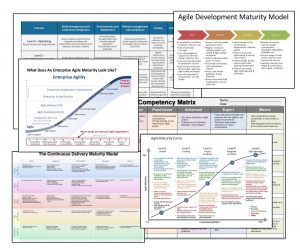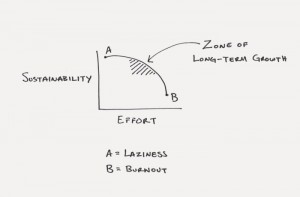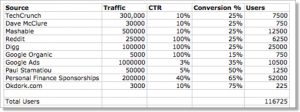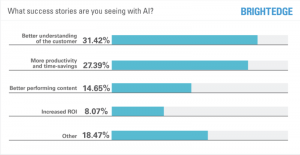Last year brought us the technological big bang of generative AI. The world was changed overnight by new systems like Midjourney and ChatGPT, which were capable of generating images and articles from nothing but a few written prompts.
But the truth is, we’ve barely tapped the potential of this technology, and now designers are racing to turn it into the next killer app. Nowhere is that more clear than in a surprise announcement that hit this week: OpenAI, the company behind DALL-E and ChatGPT, is acquiring its first company in its 7-year history. That company is the New York-based, tech-focused AI design and development startup, Global Illumination.
“The entire team has joined OpenAI to work on our core products including ChatGPT. Global Illumination is a company that has been leveraging AI to build creative tools, infrastructure, and digital experiences,” OpenAI writes in a brief press release. “The team previously designed and built products early on at Instagram and Facebook and have also made significant contributions at YouTube, Google, Pixar, Riot Games, and other notable companies. We’re very excited for the impact they’ll have here at OpenAI.”
More specifically about the three founders: CEO Thomas Dimson is a former director of engineering at Instagram, who wrote the platform’s first content ranking algorithm. CTO Taylor Gordon was a software engineer at Facebook, Instagram, and Google. And Joey Flynn was a design director Facebook, Quip, and Instagram.
While neither Global Illumination or OpenAI has responded to our request to comment, Global Illumination’s value to OpenAI is clear. This is a team that’s worked at the intersection of amorphous AI and tangible product, and it’s done that with some of the biggest tech companies in the world.
I recently visited the heart of AI design in San Francisco, where I spoke with many of the leading people working in the field. I found that currently, ChatGPT works like an engine that designers can build apps upon. But as the technical capabilities of AI generators like ChatGPT increase, so too does the necessity of design. Design can transform AI from a prompt-driven utility to software that can reshape its UI around your needs at any given moment.
Today, the “large language models” (LLMs) that power something like ChatGPT function like a person who has never gone outside, and has only experienced the world through books, news, and tweets. But they have read so dang much that they have a strong mental model of all sorts of things: what a car looks like and how to drive one; the way strings of code construct software; the plot of Yellowjackets. Not having lived life itself, sometimes it will get conclusions wrong, of course—kind of like mispronouncing a word you’ve never said aloud.
This AI is not true intelligence; not even when it appears to go rogue and channel the Terminator. Rather, every query produces something of a hallucination—a world spun up on demand, that’s not so much logical as it is ingenious at detecting correlations and summarizing data. AI is a calculator that gives answers in dreamed up words and images instead of numbers. Design is what determines everything that comes next: from the subtle controls of that calculator, to the way it presents its generated thoughts.
For OpenAI, the potential to be the engine of our AI future, powering a world of AI apps, is large, and it’s why Microsoft and others have invested billions into the company.
But OpenAI is also vulnerable to competition. Applications built upon AI are actually largely agnostic of their AI engines. Several experts I’ve spoken to in this space confirm that swapping one LLM for another might constitute a week of work, but it won’t shut down your company. And that engineering reality is an ever-looming threat to OpenAI’s continued dominance in this space.
OpenAI does have some significant design expertise in-house. Its own team developed its ChatGPT mobile app, which while appearing quite simplistic, actually uses subtle animation and haptics to add an extra sensation of intelligence to the experience. And OpenAI is reportedly working on its own assistant for work.
Acquiring Global Illumination seems like a way to increase OpenAI’s own product expertise, which it could use on anything from building its own next killer app to helping OpenAI’s many developer clients have better tools and APIs to build atop OpenAI products.
But this will be far from the last acquisition you see along these lines. Figma acquired Diagram earlier this year, a firm working specifically at the intersection of AI and design. And now, it seems, we are just seeing the beginning of this trend, as designers arrive to give substance and purpose to this nascent technology.
(9)










